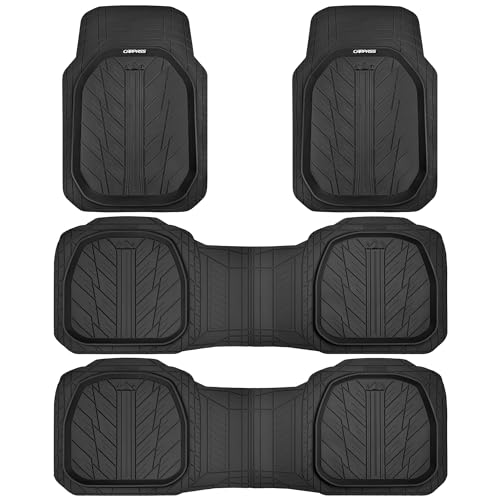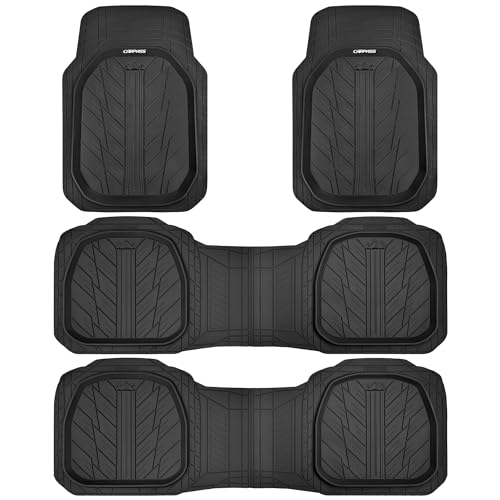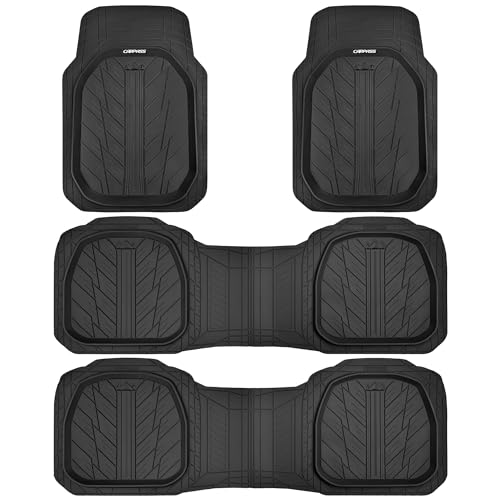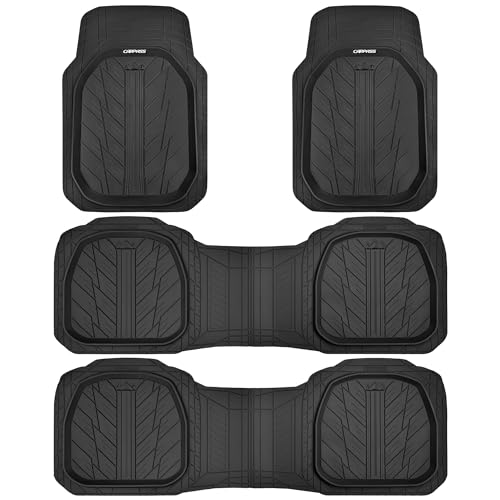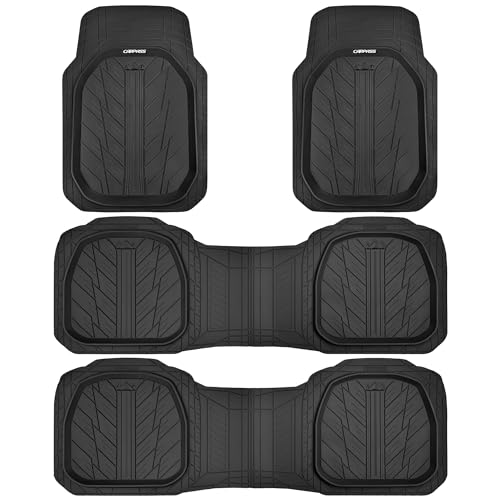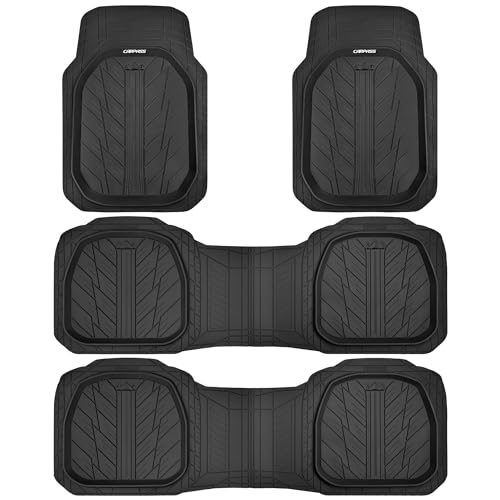Gas prices soaring? Tired of contributing to carbon emissions? Finding the best SUV hybrids 2025 can feel overwhelming, but it doesn’t have to be. This guide will help you navigate the market, understanding the features, comparing models, and ultimately finding the perfect fuel-efficient SUV that suits your lifestyle and budget. You’ll learn about the top contenders, their performance, and what makes them stand out – empowering you to make an informed decision when purchasing your next vehicle.
Key Takeaways
- Discover top-rated best SUV hybrids 2025.
- Compare fuel efficiency and performance across different models.
- Understand key features and technologies of hybrid SUVs.
- Learn about pricing and maintenance considerations.
- Find the best SUV hybrid to fit your needs and budget.
Top Hybrid SUV Models for 2025
This section dives into some of the leading contenders for the title of best SUV hybrid in 2025. We’ll examine their key features, performance statistics, and overall value proposition. We’ll focus on factors like fuel economy, safety ratings, technological advancements, and available trims to help you make a more informed choice.
Toyota RAV4 Prime
The Toyota RAV4 Prime consistently ranks highly among hybrid SUVs. Its plug-in hybrid system offers excellent electric-only range, making it ideal for daily commutes. It combines fuel efficiency with the practicality of a compact SUV. The RAV4 Prime has a reputation for reliability and has received strong safety ratings.
- Exceptional fuel economy: Expect to achieve well over 90 MPGe in electric mode.
- Impressive electric range: This allows for significant fuel savings, especially for shorter trips.
- Spacious interior: The RAV4 Prime offers comfortable seating for five adults and ample cargo space.
Ford Escape PHEV
Ford’s entry into the plug-in hybrid SUV market, the Escape PHEV, offers a compelling blend of practicality and efficiency. It combines the benefits of a hybrid powertrain with the user-friendly technology Ford is known for. This section will explore its performance capabilities and technological features.
- Strong hybrid system: The Escape PHEV provides a good balance between electric and gas power.
- Modern infotainment system: Expect a user-friendly interface with seamless smartphone integration.
- Competitive pricing: The Escape PHEV is often positioned competitively within its segment.
Hyundai Tucson Hybrid
The Hyundai Tucson Hybrid is another strong contender in the 2025 hybrid SUV market. This section will analyze its strengths and weaknesses to determine its standing among the best SUV hybrids. It stands out for its stylish design and advanced safety features. This is a great option for those looking for a modern and sophisticated ride.
- Stylish exterior and interior design: The Tucson Hybrid boasts a sleek and modern appearance.
- Advanced safety features: Hyundai offers a robust suite of safety technologies as standard.
- Competitive pricing and value: This vehicle frequently receives praise for its affordability.
Understanding Hybrid Technology in SUVs
This section provides a deep dive into the mechanics of hybrid systems in SUVs. We will break down the different types of hybrid systems available, explaining their strengths and weaknesses, and how they contribute to fuel efficiency and performance. We will also address common misconceptions surrounding hybrid technology.
Parallel Hybrid Systems
In a parallel hybrid system, both the gasoline engine and the electric motor can power the wheels independently or simultaneously. This offers flexibility in how the vehicle uses power, optimizing for fuel economy and performance.
- Simultaneous power delivery: The gas engine and electric motor can work together for increased power output.
- Regenerative braking: The system captures energy during braking, converting it into electricity to recharge the battery.
- Improved fuel efficiency: The combination of the engine and motor allows for optimized fuel consumption.
Series Hybrid Systems
In a series hybrid system, the gasoline engine solely charges the battery, which then powers the electric motor. The wheels are only driven by the electric motor. This setup prioritizes fuel efficiency but typically sacrifices performance compared to a parallel hybrid.
- Exclusively electric drive: The car is always driven by the electric motor, resulting in smooth and quiet operation.
- Improved fuel economy: By eliminating direct mechanical connection to the wheels, the engine runs at its most efficient speed.
- Limited power output: The reliance on the battery can restrict the overall power and performance.
Plug-in Hybrid Electric Vehicles (PHEVs)
PHEVs represent a step beyond standard hybrids. They can be plugged into an external power source to fully recharge the battery. This allows for extended electric-only driving range. The advantages and disadvantages will be explored in this subsection.
- Extended electric range: PHEVs provide a significant range on electric power alone, reducing reliance on gasoline.
- Reduced emissions: Driving in electric mode results in zero tailpipe emissions.
- Longer charging time: Unlike standard hybrids, PHEVs require significantly longer charging times.
Comparative Analysis of Best SUV Hybrids 2025
This section presents a side-by-side comparison of several top hybrid SUVs. We will use a table to highlight key features, allowing for easy comparison and decision-making. The table will factor in price, fuel efficiency, safety features, and technological advancements.
| Model | MPGe | Electric Range (miles) | Starting Price (USD) | Safety Rating (IIHS) |
|---|---|---|---|---|
| Toyota RAV4 Prime | 94 | 42 | 40,000 | Top Safety Pick+ |
| Ford Escape PHEV | 100 | 37 | 35,000 | Top Safety Pick |
| Hyundai Tucson Hybrid | 35 | 0 | 27,000 | Top Safety Pick+ |
Note: Prices and specifications are estimates and may vary. Consult official manufacturer websites for the latest information.
Choosing the Right Best SUV Hybrid for Your Needs
This section focuses on helping you assess your individual needs and preferences to narrow down your options for a suitable SUV hybrid. It offers a step-by-step guide and real-life examples to assist in the decision-making process.
Step-by-Step Guide to Choosing Your SUV Hybrid
- Define your budget: Determine how much you’re willing to spend on a new or used SUV hybrid.
- Consider your daily driving habits: How far do you typically drive each day? Do you primarily drive in urban areas or on highways?
- Assess your passenger and cargo needs: How many passengers do you regularly transport? How much cargo space do you require?
- Prioritize desired features: Which features are most important to you (e.g., advanced safety technologies, infotainment system, fuel efficiency)?
- Research and compare models: Use online resources and test drives to compare models that fit your criteria.
Real-Life Case Studies
Case Study 1: A family of four living in a suburban area with a daily commute of 20 miles found the Toyota RAV4 Prime ideal due to its electric-only range for their daily needs. They experienced significant savings on fuel costs.
Case Study 2: A single professional living in the city with short commutes and frequent errands preferred the Hyundai Tucson Hybrid for its efficient city driving and compact size. The blend of fuel efficiency and features worked well for their lifestyle.
Debunking Common Myths about Hybrid SUVs
Myth 1: Hybrid SUVs are too expensive.
While the initial purchase price might be higher than comparable gasoline-powered SUVs, the long-term savings on fuel and reduced maintenance can offset the higher upfront cost over time. Many hybrid SUVs now fall within a similar price range to non-hybrid options.
Myth 2: Hybrid batteries are expensive to replace.
While hybrid battery replacement can be costly, many manufacturers offer extended warranties on their hybrid batteries, and the lifespan of these batteries is significantly longer than previously thought. In many cases, batteries will last for the vehicle’s lifetime.
Frequently Asked Questions
What is the difference between a hybrid and a plug-in hybrid SUV?
A standard hybrid SUV uses regenerative braking to recharge its battery, while a plug-in hybrid (PHEV) can also be charged externally from a power source, allowing for longer distances driven solely on electric power.
How much does it cost to maintain a hybrid SUV?
Maintenance costs for hybrid SUVs are generally comparable to gasoline-powered vehicles, with some components, like the hybrid battery, having longer lifespans. However, repairs to these components can be expensive.
What is the average lifespan of a hybrid battery?
The lifespan of a hybrid battery varies depending on usage and maintenance, but generally, they last for over 100,000 miles, often even lasting the lifetime of the vehicle.
Are hybrid SUVs as powerful as gasoline SUVs?
The power output of hybrid SUVs can vary, but many offer comparable performance to gasoline-powered counterparts, and in some instances even more power depending on the model.
What are the environmental benefits of driving a hybrid SUV?
Hybrid SUVs produce fewer greenhouse gas emissions compared to their gasoline counterparts, reducing your carbon footprint. They also contribute to better overall air quality.
How long does it take to charge a plug-in hybrid SUV?
Charging times for plug-in hybrid SUVs vary depending on the charger and the battery size, ranging from a few hours to several hours using a level 2 charger.
Final Thoughts
Choosing the best SUV hybrid for 2025 requires careful consideration of your individual needs and preferences. By understanding the different types of hybrid systems, comparing models, and assessing your budget and driving habits, you can find a vehicle that provides both excellent fuel efficiency and the features you desire. Don’t hesitate to test drive different models and talk to dealerships to get the best deal for your next vehicle. Remember to factor in long-term costs such as maintenance and fuel efficiency to make the most informed decision.

